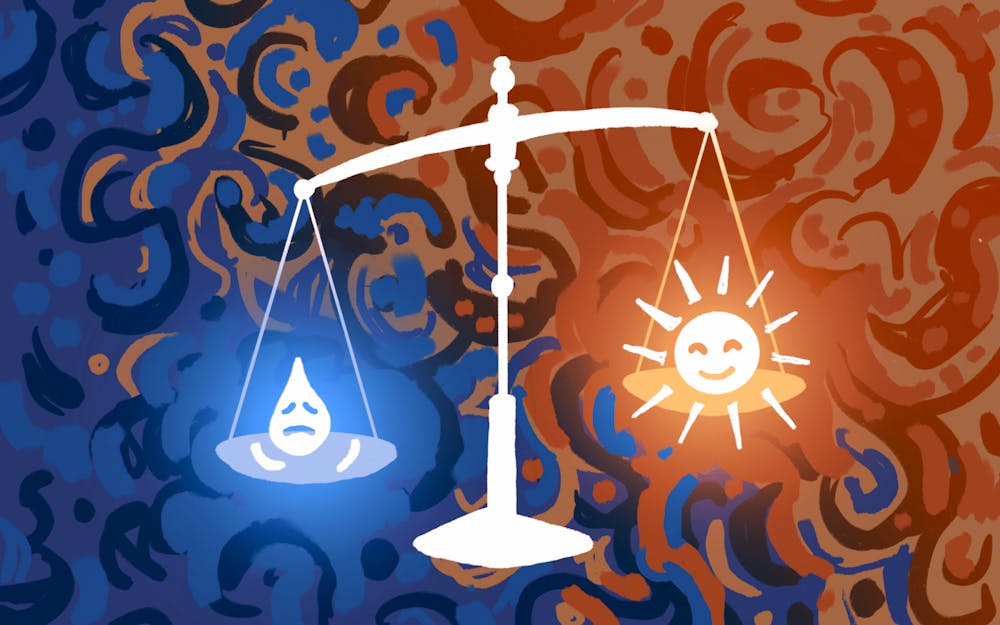About a year ago, I was presenting my project at the IU Intensive Freshman Seminar conference. My group and I had run an experiment on how empathetic professional runners are depending on their speed in relation to people who don’t run. I was asked millions of questions about my process, findings and overall experience in the class.
At some point, I was approached by a student from another IFS class. After listening to me explain my poster for the 50th time, he asked me a question that wasn’t really related at all to what I'd just talked about but intrigued me nevertheless. “Do you think it’s more important to be happy or sad?”
In the middle of one of my first college functions, I wasn’t expecting to be asked a question this profound. I'd think almost anyone would say they prefer to be happy. Obviously, right? Who wants to be sad? Happiness keeps us sane and simplifies things. We always aspire to reach a state of happiness because that’s just who we are. We want to be satisfied with what we have, and once we’ve reached that appropriate level of satisfaction, we’re truly happy.
Except it’s never that simple. We are never wholly satisfied with what we have right in front of us. There's always something missing. Even if you’ve found the perfect friend group in college and ate a good dinner, your grades may be suffering. You can have the perfect outfit planned out for a party, but no one you know will be there. It's almost impossible to find a case where everything lines up perfectly in your favor.
And that’s okay. It's okay to be sad and disappointed sometimes. We need sadness in order to recognize and value the happiness in our lives. We can learn from our sadness and struggles and grow on our journey to happiness. We can work on ourselves and learn more about who we are as individuals, about why something makes us happy and why it’s important to us.
[Related: OPINION: Who cares what people think]
In his article, Four Ways Sadness May Be Good For you, psychology professor at the University of South Wales Joseph Forgas says sadness can increase motivation and encourage people to put more effort into reaching a goal. According to Forgas, people who are already happy are less likely to exert as much effort because they’re already in a comfortable situation. They don’t feel a pressing need to work as hard because they’re already happy with where they are and are thus less productive. I don’t know how the brain works, but somehow being sad turns us into harder, more determined workers. It teaches us about what we don’t want and what we want to strive for.
Being sad also gives us time to reflect on what we have in front of us and recognize that we will never be fully satisfied. If everything were to go our way every single time, life would eventually lose meaning. Nothing would be labeled as special anymore because it always turns out in our favor. We have nothing negative to compare it to so it can’t be ‘better’ than anything else. We would eventually lose appreciation for all this perfection because it’s not relevant to us anymore. It's a spoiled, irrelevant way of living.
Don't get me wrong, I love being happy. I'm always glad when things go my way and I don’t have to stress about readjusting my life in order to fix something. But I also have space reserved in my heart for sadness. Being sad allows us to realize that it’s okay to never be fully satisfied with what we have. Being sad allows us to appreciate the little pockets of happiness in life.
It's the sadness in us that shapes who we are and determines where we’ll go. Embrace being sad, and you’ll find happiness along the way.
Isabella Vesperini (she/her) is a sophomore majoring in journalism and minoring in Italian.






